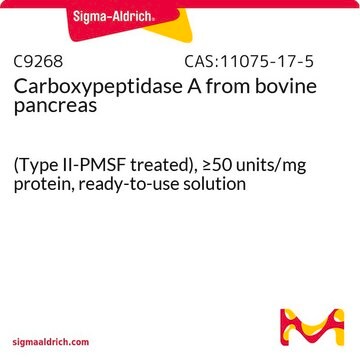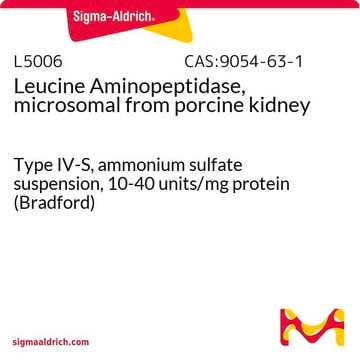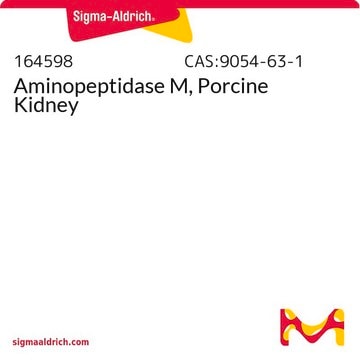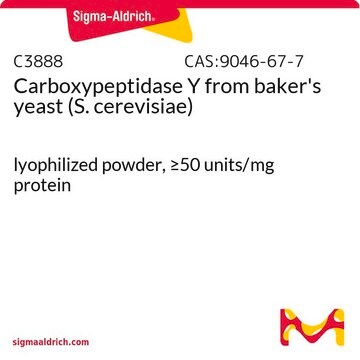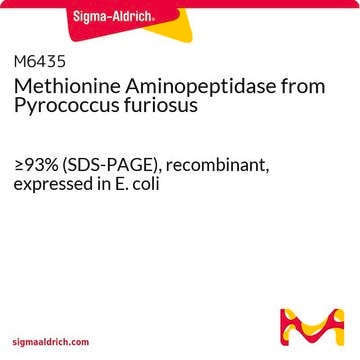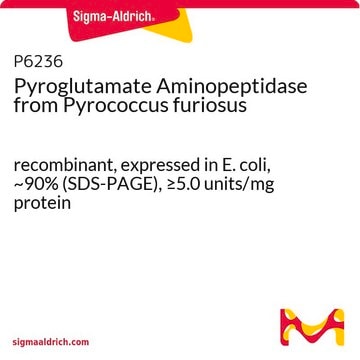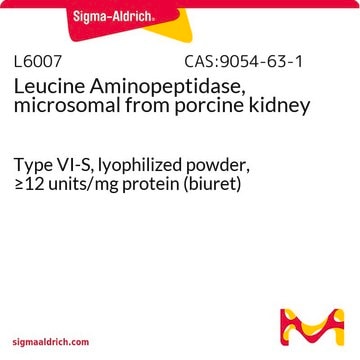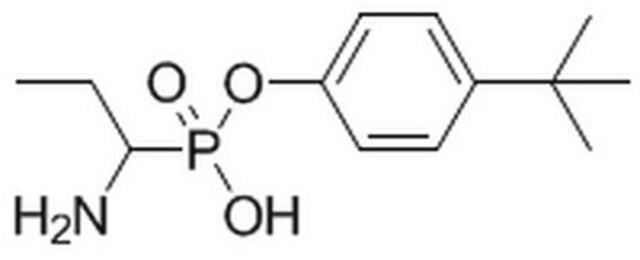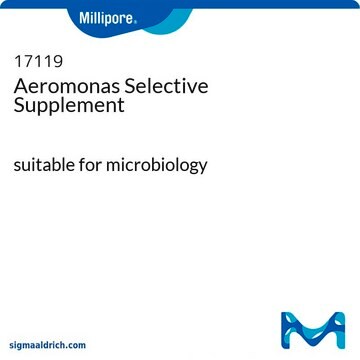A8200
Aminopeptidase from Aeromonas proteolytica
lyophilized powder, 50-150 units/mg protein
Sinónimos:
AAP, Aminopeptidase from Vibrio proteolyticus, bacterial leucyl aminopeptidase
About This Item
Productos recomendados
grade
Proteomics Grade
Quality Level
form
lyophilized powder
specific activity
50-150 units/mg protein
mol wt
29.5 kDa
composition
Protein, ~40% biuret
solubility
H2O: soluble 0.9-1.1 mg/mL, clear, colorless
foreign activity
endopeptidase, essentially free
storage temp.
−20°C
General description
Specificity
Application
Biochem/physiol Actions
Unit Definition
Physical form
Preparation Note
signalword
Danger
hcodes
Hazard Classifications
Eye Irrit. 2 - Resp. Sens. 1 - Skin Irrit. 2 - STOT SE 3
target_organs
Respiratory system
Storage Class
11 - Combustible Solids
wgk_germany
WGK 1
flash_point_f
Not applicable
flash_point_c
Not applicable
ppe
Eyeshields, Gloves, type N95 (US)
Certificados de análisis (COA)
Busque Certificados de análisis (COA) introduciendo el número de lote del producto. Los números de lote se encuentran en la etiqueta del producto después de las palabras «Lot» o «Batch»
¿Ya tiene este producto?
Encuentre la documentación para los productos que ha comprado recientemente en la Biblioteca de documentos.
Los clientes también vieron
Nuestro equipo de científicos tiene experiencia en todas las áreas de investigación: Ciencias de la vida, Ciencia de los materiales, Síntesis química, Cromatografía, Analítica y muchas otras.
Póngase en contacto con el Servicio técnico